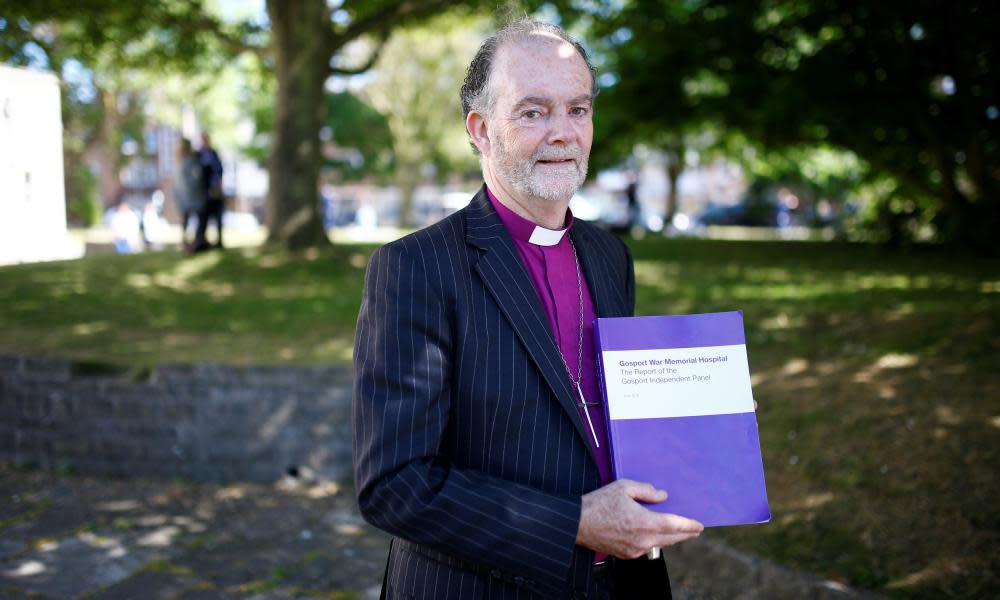The Guardian view on the Gosport hospital deaths: the families vindicated at last

At long last, relatives of hundreds who died in the Gosport War Memorial hospital in the 1990s have had some answers, thanks to an inquiry chaired by the Right Rev James Jones. The former bishop of Liverpool, who also chaired the Hillsborough panel, was initially in touch with eight families, and ended up in contact with 100. His report now concludes, shockingly, that more than 450 lives were shortened unnecessarily after they were given inappropriate doses of opioids. The drugs were administered using a syringe driver, normally reserved for pain relief for those at the very end of life. These patients were frail, elderly and sick – but had every hope of recovery. That possible future was taken from them.
One of the most distressing elements of the case is that concerns were raised by nurses as long ago as 1991, but the hospital authorities chose not to act. When relatives began to make complaints, they were often treated with disdain, brushed off as irritants. The Gosport families have shown extraordinary bravery, despite years of obfuscation and inaction, despite the sense that the establishment had closed ranks to protect their own people and institutions – a complex, interleaved collection of bodies including the hospital itself, the Hampshire constabulary, the Crown Prosecution Service, the General Medical Council and the General Nursing Council.
The name of one doctor in particular is destined to be associated with Gosport: Dr Jane Barton, a GP, who oversaw the prescription of the fatal drugs. A GMC investigation, which took place only in 2009, found her guilty of serious professional misconduct but did not strike her off. She is now retired. As the Gosport report’s findings are absorbed, and as understandable anger is aired, it would be tempting to focus a desire for justice solely on her. While it is clear that individuals must face the consequences of their actions, it is also the case that Dr Barton was relatively junior. Senior colleagues were aware of her actions. Fresh police investigations seem likely and the case of Gosport may, in due course, turn out to justify charges of corporate manslaughter.
One purpose of an inquiry such as this is to prevent the repetition of past mistakes. In the period under scrutiny – 1987 to 2001 – patient safety was much less of an urgent priority. There was still a culture of deference towards supposedly omniscient consultants. This has transformed, not least in the wake of the Mid Staffordshire scandal. Hospitals are now regularly inspected, there are ways for whistleblowers to raise concerns, and patients are better able to make complaints. The system is surely imperfect, but vastly improved. The greatest threat to patient safety now is understaffing. NHS Improvement, which oversees hospital trusts, recently reported that 93,000 posts are unfilled in English hospitals – including nearly 36,000 nursing positions and nearly 10,000 for doctors. It is this lack of staff, partly a result of too few university places and partly a result of clinicians quitting jobs that leave them disillusioned, that must be addressed.
The task of keeping patients safe and clinicians accountable is constantly evolving. An enduring lesson from Gosport is that the will of bereaved families to understand what happened to their loved ones is stronger than the capacity of any bureaucracy to obscure the truth. The Gosport families bore a lonely burden, as the Right Rev James Jones has made plain. They persisted despite every attempt to silence them, because they instinctively knew justice was on their side. And now, at last, they are vindicated.

 Yahoo News
Yahoo News 
